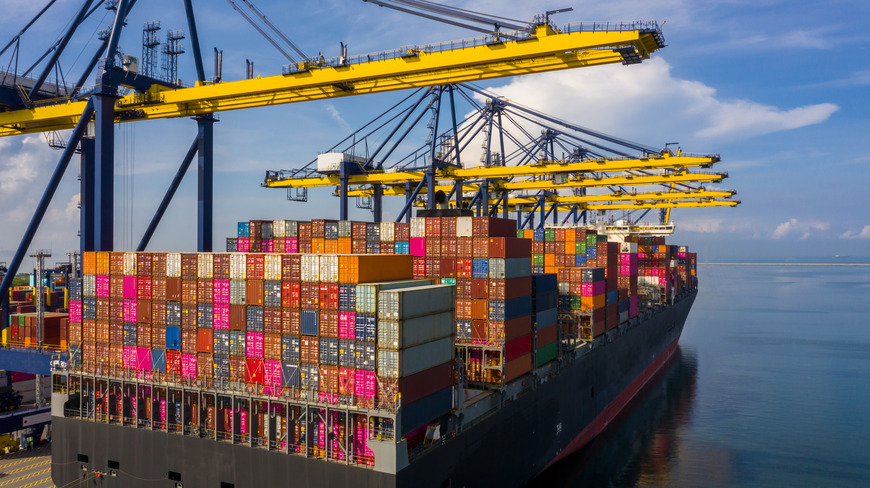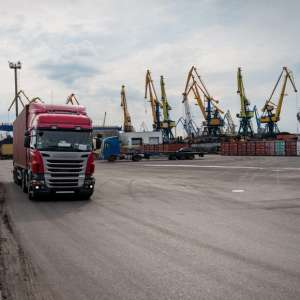Survival Strategies under Tariff Barriers: Chinese Export Enterprises’ Coping Strategies for the U.S.
Latest update on 6 Feb, 2025 by Aaron Tam – Marketing Analyst at FreightAmigo
Want to Instantly Compare International Express, Air, Sea, Rail Freight And Truck Logistics Management Solutions To Control Transportation Costs?
In the tumultuous global trade landscape of 2025, U.S. President Donald Trump has once again become the focus of international attention. Recently, he signed an executive order to impose tariffs on imports from China, Canada, and Mexico, and to revoke the long-standing “de minimis” exemption.

2. Specific Content of Tariff Policy
According to the executive order signed by Trump, the United States will impose tariffs on goods imported from China, Canada, and Mexico. Among them, a 10% tariff will be imposed on Chinese goods. This tariff increase is not targeted at specific products but applies to all goods imported from China. The United States will impose an additional 10% punitive tariff on top of the existing tariffs, and energy resources will also be taxed at 10%. For goods from Canada and Mexico, a 25% tariff will be imposed.
 In addition to imposing tariffs, the Trump administration has also revoked the long-standing “de minimis” exemption. This provision originally allowed packages valued below $800 to enter the U.S. duty-free and was widely used by many e-commerce platforms. However, with the cancellation of the de minimis provision, these e-commerce platforms will face higher import costs and tax pressures. This move will undoubtedly have a huge impact on the export industries of these three countries and will also affect the stability and efficiency of the global supply chain.
In addition to imposing tariffs, the Trump administration has also revoked the long-standing “de minimis” exemption. This provision originally allowed packages valued below $800 to enter the U.S. duty-free and was widely used by many e-commerce platforms. However, with the cancellation of the de minimis provision, these e-commerce platforms will face higher import costs and tax pressures. This move will undoubtedly have a huge impact on the export industries of these three countries and will also affect the stability and efficiency of the global supply chain.
3. Impact of Tariff Increases and the Cancellation of the De Minimis Provision on the E-Commerce Industry
The cancellation of the de minimis provision affects not only e-commerce platforms like Temu and Shein but also has far-reaching impacts on the entire e-commerce industry. The main aspects of the impact on the e-commerce industry are as follows:
- Increased Operating Costs: With the cancellation of the de minimis provision, e-commerce platforms will face higher import costs and tax pressures. This will directly lead to increased operating costs, affecting the platforms’ profitability and market competitiveness.
- Increased Product Prices: The increase in import costs will directly lead to higher product prices. For consumers, this means they need to pay higher prices for the same products, affecting their purchasing power and willingness to buy, which in turn will impact the sales and market share of e-commerce platforms.
- Supply Chain Adjustments: Facing tariff increases and the cancellation of the de minimis provision, e-commerce platforms may need to reassess and adjust their supply chain layouts. This includes finding new suppliers, optimizing logistics channels, and reducing operating costs.
4. How to Respond to the U.S. Tariff Increases and Adjustments to the Exemption Policy?
The latest changes in U.S. tariff policy will increase the cost of selling goods from China to the United States, affecting businesses in various industries. As these tariffs take effect, companies must find ways to mitigate the rising costs and maintain their competitive edge.
- Strengthen Policy Research and Risk Assessment Enterprises should continuously monitor the dynamics of U.S. and international trade organization tariff policies, including specific product lists, rate changes, and exemption policy adjustments. Conduct risk assessments on potentially affected logistics routes, product categories, and customer groups, and develop corresponding risk response strategies, including adjusting logistics plans and finding alternative markets.
- Optimize Supply Chain Management Enterprises should diversify their supply chains to reduce reliance on a single market or supplier. Consider setting up warehouses and distribution centers in multiple countries or regions to mitigate the risks brought by tariff policy adjustments. Actively seek alternative suppliers and choose suppliers and logistics partners with lower costs and higher efficiency to ensure supply chain flexibility and stability.
- Adjust Logistics Strategies and Transportation Methods Enterprises can choose appropriate transportation routes and ports according to tariff policy adjustments to reduce transportation costs and tariff burdens. Flexibly choose different transportation methods such as sea, air, and land transport. When necessary, consider using multimodal transport to improve transportation efficiency and reduce costs.
Comprehensive Assistance from FreightAmigo in Responding to New Tariff Policies
When facing the challenges brought by the new U.S. tariff policies, Chinese enterprises need to find effective solutions to optimize operations, reduce costs, and maintain market competitiveness. FreightAmigo provides a comprehensive set of services to help enterprises adapt to the new tariff environment and ensure smooth business operations.
- Real-time Freight Quotes for Precise Cost Control FreightAmigo’s platform offers real-time freight updates, allowing enterprises to compare and choose the most cost-effective transportation solutions. This feature is crucial for managing the additional costs arising from increased tariffs, helping enterprises precisely control logistics costs and ensure overall expense optimization.
- Professional Customs Clearance Assistance for Efficient Customs Clearance Dealing with complex customs procedures can be challenging, especially under new tariff policies. FreightAmigo provides professional customs clearance guidance services, ensuring goods can smoothly and efficiently pass through customs, minimizing delays and additional costs, thereby guaranteeing logistics efficiency and cost control for enterprises.
- Supply Chain Optimization to Enhance Cost Efficiency FreightAmigo assists enterprises in optimizing their supply chains through advanced logistics strategies to reduce the impact of tariffs on overall expenses. By integrating supply chain resources, optimizing transportation routes, and reducing inventory costs, enterprises can maximize cost efficiency while maintaining competitiveness.
- Trade Financing Solutions to Ensure Stable Cash Flow As costs potentially increase, managing cash flow becomes critical. FreightAmigo provides trade financing solutions to help enterprises manage finances more effectively, ensuring they have the necessary liquidity to continue smooth operations. This service can alleviate financial pressure and support the sustainable development of business.
- Flexible Logistics Strategies to Cope with Dynamic Trade Environment The dynamic nature of international trade requires enterprises to stay agile and flexible. FreightAmigo’s platform offers highly adaptable logistics solutions that can be customized according to the ever-changing tariff structures and trade policies. This service allows enterprises to flexibly respond to market changes, ensuring smooth and efficient logistics operations.
If you are looking for logistics experts, please visit FreightAmigo Page
Read More:
【Understanding the Essentials】 Labeling Requirements for Shipping Toys
If you have any inquiries on logistics / supply chain, feel free to contact FreightAmigo now:
Chat with us online | Hotline: +852 28121686 | WhatsApp: +852 27467829









































